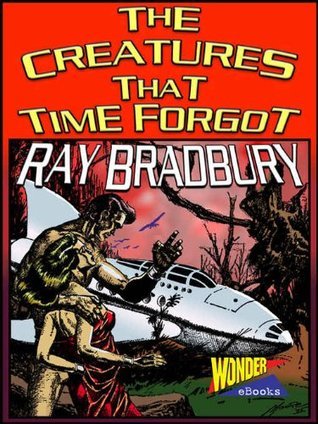
There Will Come Soft Rains
Book Description
In a world where silence reigns and technology continues its relentless march, an automated house functions flawlessly, catering to a family that no longer exists. Each day unfolds with precision, but echoes of memories linger, haunting the shimmering walls. As the house performs its daily rituals, an unseen danger threatens its existence, turning routine into suspense. This gripping tale explores the fragility of humanity and the haunting consequences of isolation. What happens when the very things designed to protect us become the instruments of our undoing?
Quick Book Summary
"There Will Come Soft Rains" by Ray Bradbury tells the haunting story of an automated house in a post-apocalyptic future. The house continues to operate with precise regularity, preparing meals, cleaning, and maintaining routines for a family that has long since vanished, their absence hinting at human extinction likely caused by nuclear war. The story skillfully contrasts the technological prowess of the house with the silence and emptiness left by humanity’s absence. As the house faces a sudden disaster, its advanced systems are powerless to save it, underscoring the ultimate futility of technological advancement without human presence. Bradbury’s story serves as a powerful meditation on the consequences of unchecked technology, the fleeting nature of human life, and the haunting persistence of memory.
Summary of Key Ideas
Table of Contents
The Illusion of Progress Through Technology
In the story, an automated house stands alone in a city reduced to ash by nuclear devastation. Despite the total absence of its human inhabitants, the house continues its routines as if nothing has changed. It prepares meals, cleans itself, announces the date, and reads reminders, all for an audience that no longer exists. The sights and sounds inside the house, from robotic mice cleaning to electronic voices reciting daily schedules, illustrate a triumph of technology over daily inconveniences, even as the underpinning society is gone.
Human Absence and Isolation
The emptiness of the house reveals the bitter irony of progress: technology endures while humanity is gone. Ghostly reminders of the family, such as silhouettes burned into the wall by the nuclear blast, haunt the house’s corridors. These shadows are the only remaining evidence of the people who once lived there, emphasizing the memories and absence left behind by the catastrophe. The house’s meticulous attentiveness to its absent residents underscores the theme of isolation and the consequences of society’s overreliance on technology.
Nature Versus Artificiality
Nature's presence in the story is both subtle and significant. While the house is meticulously maintained and cordoned against the outside world, nature steadily encroaches. A dog, the last remnant of domestic life, briefly enters before succumbing to the toxic environment, symbolizing the harsh reality outside the automated comfort. The walls recite Sara Teasdale’s poem "There Will Come Soft Rains," highlighting nature’s indifference to human affairs and insisting that the natural world will persist, heedless of mankind’s fate.
The Fragility of Civilization
Bradbury dramatizes the vulnerable underbelly of civilization through the house’s downfall. When a fire unexpectedly breaks out, the house’s sophisticated systems attempt to extinguish it with mechanical precision. Despite all its advancements, the house is ultimately unable to save itself. The systematic, unfeeling responses of its technology become futile gestures as fire consumes everything. This climax illustrates how even the most advanced human creations are ultimately fragile in the face of uncontrollable natural forces.
The Futility of Routine Without Purpose
With the destruction of the house, Bradbury’s tale ends on a note of bleak irony. The house’s routines, impressive and precise though they may be, become pointless without anyone to benefit from them. The relentless repetition of scheduled tasks feels increasingly absurd and tragic. Through this, Bradbury interrogates the purpose of innovation and ritual, questioning their worth in the face of humanity’s absence. The story lingers as a cautionary meditation on technological progress pursued without regard for life or the natural world.
Download This Summary
Get a free PDF of this summary instantly — no email required.





